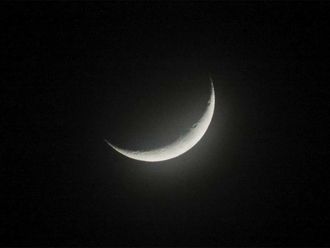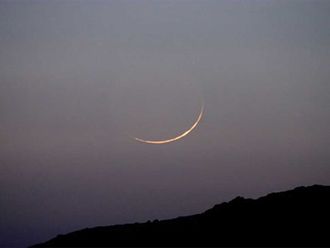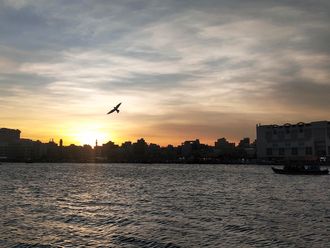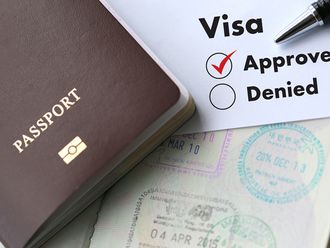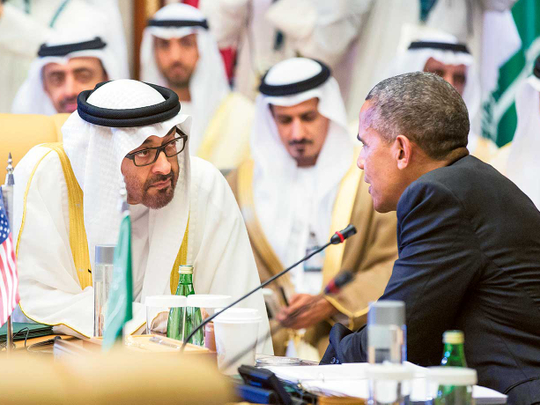
Dubai: United States President Barack Obama joined the leaders of the six Gulf Cooperation Council (GCC) countries on Thursday for a summit meeting intended to reassure allies in the region that the United States is committed to their security.
In a series of closed-door sessions, Obama and his counterparts discussed ways to promote regional security, efforts to defeat terrorist groups like Daesh, and how best to deal with Iran.
Obama, however said that neither the United States nor GCC nations had an interest in conflict with Iran.
“Even with the nuclear deal we recognise collectively that we continue to have serious concerns about Iranian behaviour,” Obama said at the close of the summit in Riyadh.
He said that the US and Gulf oil producers will work together to lessen the impact of low oil prices.
With Daesh suffering a series of recent setbacks in areas under its control in Syria and Iraq, Washington is seeking more help from the Gulf states to keep up the pressure.
After bilateral talks with Saudi King Salman Bin Abdul Aziz the day before, Obama posed on Thursday for a summit photo with six leaders of Gulf Cooperation Council (GCC) countries before heading into four hours of talks at a royal palace.
In a highly unusual move, Saudi state news channel Al Ekhbaria did not broadcast the start of the meeting, just as it did not show Obama’s airport arrival on Wednesday.
Saudi Arabia and other Gulf states belong to the US-led coalition that has been carrying out air strikes against Daesh in Syria and Iraq since mid-2014.
But on Wednesday, US Defence Secretary Ashton Carter — in Riyadh with Obama — urged them “to do more”.
He pointed specifically to Iraq, calling for more support for Baghdad, which is battling political chaos and an economic crisis as well as the extremists.
Arab support for “multi-sectarian governance and reconstruction” in Iraq will be critical to ensuring the defeat of Daesh, the Pentagon chief said after meeting Gulf counterparts.
In Baghdad earlier this week, Carter announced that the United States would send more troops and make Apache attack helicopters available to Iraq as its forces push a renewed fightback against the terrorists aimed at eventually retaking the Daesh hub of Mosul.
Analysts said Syria would also be on the table at the summit, with Washington likely pushing Saudi Arabia and its allies to influence the Syrian opposition, which they have long supported, to abide by a ceasefire.
“I think Syria will obviously be a big focus, ensuring that the Saudis focus their diplomatic energies on the ceasefire, perhaps soliciting more Saudi support on refugees. But then also asking the Saudis to do more on [Daesh],” said Frederic Wehrey of the Carnegie Endowment for International Peace.
Washington hopes the ceasefire, and peace talks in Geneva, can help resolve Syria’s broader conflict to focus attention on the fight against Daesh and other terrorist groups.
US Secretary of State John Kerry also joined Obama in Riyadh, where he held talks with Saudi Arabia’s powerful Deputy Crown Prince and Defence Minister Mohammad Bin Salman.
The full-scale diplomatic offensive follows months of rising tensions between the United States and Gulf nations, who have for decades enjoyed strong security ties with Washington.
Obama’s perceived tilt towards their arch-rival Iran has been a particular concern, with Gulf states worried that Tehran will be emboldened to seek a still bigger regional role after the lifting of sanctions under its landmark nuclear deal with major powers led by the United States.
Prince Turki Al Faisal, the kingdom’s former intelligence chief, told CNN that Obama’s conduct and declarations have made Saudi Arabia realise that the relationship has changed.
“My personal view is that America has changed,” he said.
“How far we can go with our dependence on America? How much can we rely on steadfastness from American leadership? What is it that makes for our joint benefits to come together? These are things that we have to recalibrate,” the senior royal said.
He said he did not think the next president should be expected to return to “the yesteryear days when things were different”.
Obama adviser Rob Malley said it is important to settle the conflicts in Syria and Yemen not only because of their devastating humanitarian consequences, but because an end to fighting will allow countries involved “to focus more of their activities against [Daesh] and against Al Qaida.”
A Saudi-led coalition launched a military intervention against Iran-backed rebels in Yemen last year and UN-supported peace talks to end the conflict are due to begin this week in Kuwait.
Prince Salman on Wednesday expressed hope that the talks “would achieve positive progress” despite a delay in the rebel delegation showing up.
Obama is expected to tell the Gulf leaders that Washington will not ignore “destabilising acts” by Iran, and the president has previously assured them that the US security commitment is “ironclad”.
The White House says military cooperation has accelerated with Gulf states worried about the Iranian threat since he hosted Gulf leaders at Camp David last May.


